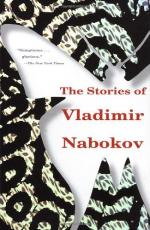|
This section contains 9,450 words (approx. 32 pages at 300 words per page) |

|
SOURCE: “Fantasy, Folklore, and Finite Numbers in Nabokov's ‘A Nursery Tale,’” in Slavic and East European Journal, Vol. 43, No. 3, Fall, 1999, pp. 511-29.
In the following essay, Sweeney discusses the role of fairy tale elements in Nabokov's “A Nursery Tale.”
Like most of Vladimir Nabokov's works, the short story “Skazka” concerns the poignant gap between desire and reality, and the perils of trying to surmount it. Nabokov wrote this tale fairly quickly “in Berlin in late May or early June 1926”—the same setting as the story itself—and it appeared in the Berlin emigré journal Rul' only a few weeks afterward. Almost fifty years later, in 1975, when he and his son had finally translated “Skazka” into English as “A Nursery Tale,” Nabokov disparaged it as “a rather artificial affair, composed a little hastily, with more concern for the tricky plot than for imagery and good taste” (Preface 40).1 “A Nursery...
|
This section contains 9,450 words (approx. 32 pages at 300 words per page) |

|


